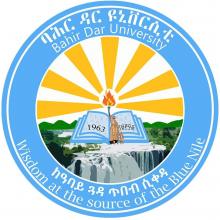
Education for all: intellectual dialogue
BDU:The Faculty of Educational and Behavioral Sciences at Bahir Dar University has recently held its 32nd Annual International Conference with the theme: “Education for All (EFA) Goals: Achievements, Challenges and Prospects in Ethiopia.”
The program began with an inspiring dramatized education-related song performed by group choir of Bahir Dar University’s cultural centre. The audience was deeply moved by the students’ performance.
A total of 32 research papers focusing on different contemporary topics related to the underlying theme were presented in three parallel sessions and lively discussions were made. Plenary sessions were also conducted.
Critical discussions and reflections were made on the third day, and general concluding remarks in relation to the conference has been made. In addition, direction for continuous future discourses and actions has been set.
Research shows that though there is improvement in gender parity across primary and secondary schools in Ethiopia, female students’ drop outs, repetition and inability to proceed to higher levels are still big challenges. School facilities are observed to be non gender sensitive.
Holistic approach to education sector, national commitment to transparency and accountability in education expenditure, good governance and sound monitoring and evaluation system have been recommended to realize Universal Primary Education (UPE) in Ethiopia.
In connection to EFA’s goal of Increasing Adult Literacy, research shows that adult literacy facilitators are found to be lacking proper training and payment.
Researches on universalizing primary education in Ethiopia, alternative basic education program, in which flexible programs were recommended, rural girl’s participation in education in East Gojjam, where cultural practices, early marriage, workload and rape are found to be affecting girl’s participations in education were presented and discussions were made.
Scattered and mobile nature of the community, poor utilization of alternative schooling, lack of suitable schools, slow construction of schools, lack of awareness and role model and many other factors that affect UPE in pastoralist areas.
Challenges like lack of support, commitment, incentives and understanding and weak collaboration of stakeholders have prevented school principals from implementing General Quality Education Improvement Program (GEQIP) in Ethiopia.
Research works on parent-school communications, early childhood care and education, internal efficiency vis-à-vis quality education in government and private schools of Addis Ababa were presented and discussed.
It has been pointed out in research on Education for All (EFA) that without clearly stipulated policy education, making education accessible might be pretty much challenging.
With regard to parents’ engagement in private schools in Addis Ababa, parents have not been given a space they deserve to have in school-parent partnership.
Papers on instructional leadership, inclusive education, and constructivist approach to teaching-learning process, female students in cooperative learning, students with disabilities and their access to education, child sexual abuse, re-conceptualizing instructional processes, geo-information system and equity to education in Amhara region have all been presented and discussed. Other papers dealt with included automatic promotion practices, educational policy reforms, instructional materials and inquiry learning.
Plenary sessions focusing particularly on the status of general education and EFA Goals in Ethiopia, international perspective to quality education for all, building a model of educational leadership for sustainability, UPE and educational policy review have been conducted and enlightening discussions were made.
In the end, general discussions and reflections were made. Critical lessons were drawn from the conference. Having conceptual clarity on policies, making policy dialogue, helping implementers have a clear understanding of the polices, avoiding silent exclusion in education, having varieties of policy options, maintaining effective link with Ministry of Education, engaging grassroots level stakeholders and critical needs assessments were recommended.





